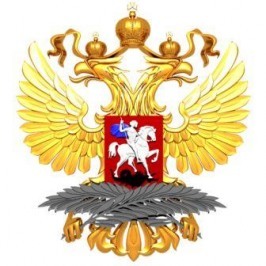British Prime Minister Theresa May’s remarks at the British Parliament on 5 September regarding the so-called Skripal case and the poisoning of two British nationals in Amesbury were delivered in an absolutely unacceptable tone. They contain a number of peremptory accusations against Russia and two allegedly Russian citizens. We strongly reject these insinuations.
In particular, we took note of her saying that “only Russia had technical means and experience of the use of so-called Novichok as well as motives to use it in Salisbury.” This statement was made immediately after the release in The Hague on the previous day of a report by the Technical Secretariat of the Organisation for the Prohibition of Chemical Weapons (OPCW) on the results of the work of this organisation’s experts at London’s request in connection with the Amesbury incident.
The report, in particular, says that the results of the analysis of the environmental and biomedical samples taken by the OPCW experts confirm British findings about the nature of toxic chemicals that poisoned two British citizens in Amesbury. As to the chemical composition it is a nerve agent – the same substance that was found in the samples that were mentioned in the case of the poisoning of the Skripals and police officer Nick Bailey in Salisbury on 4 March. Interestingly, the report says nothing about the origin of this nerve agent. The very term “Novichok”, which was at the time offhandedly introduced by the British political manipulators, is not mentioned, either.
We emphasize once again that neither the OPCW, nor the British laboratory in Porton Down are in a position to determine the country of origin of the poisonous agents from Salisbury and Amesbury. Work on such chemical compounds has been carried out for several decades now in a number of countries, including the United States, Great Britain, Germany, Sweden, Czech Republic and the Netherlands. This is evidenced by the information from open sources obtained during independent investigations. We repeat this for those who may have a short memory.
This issue requires thorough consideration by the OPCW. We call on the Technical Secretariat of the Organisation to take a very careful look at the information coming from the states parties to the Convention in response to OPCW request regarding chemicals not controlled by the CWC. Back in May, Russia officially submitted a 400-page document listing about 1000 new types of nerve agents that would be expedient to consider from the point of view of amending the Annex of the CWC on Chemicals. We are interested to find out how much of such information came from the countries that so peremptorily associate the notorious Novichok agent with Russia. Did they provide such information to The Hague at all?
Clearly, Britain doesn’t care about the OPCW experts’ findings. What matters for London is to involve the OPCW into its outrageous accusations against Russia and use openly unscrupulous methods to associate the name of this organisation with the results of the relevant investigations conducted by military chemists from Porton Down. That is, to have the OPCW rubber-stamp unsubstantiated accusations.
We will continue to use facts to counter the anti-Russian hysteria around the Skripal case. It is regrettable that the OPCW Technical Secretariat, wittingly or unwittingly, is being involved into the unscrupulous political game played by Britain and its allies, who do not care about the requirements of the Convention.
We have previously pointed out on several occasions: there is nothing in the CWC that would require the Technical Secretariat to assist a member state in confirming the results of its national investigation. Strictly speaking, assistance is provided to those participating states that need it to fulfil their obligations under the Convention that are primarily related to destroying stockpiles of chemical weapons. As a rule, these are countries that have no appropriate equipment or specialists. The British, obviously, have both in ample supply. The Porton Down laboratory is exactly the place that works with the substance referred to as Novichok in the West.
According to the CWC, a consultation procedure is used whenever a member state has questions to another member state. It can be conducted either directly in a bilateral format, or with the assistance of the Technical Secretariat and the OPCW Executive Council. We made relevant proposals to the British several times, but they rejected them. Well, that's the choice of London.
We remind everyone of the futility of attempts to juggle the Convention provisions or to pile up groundless accusations. London must return to the legal framework of this document.
In the near future, we will again submit to the international community the background information pertaining to that matter. We will do so in The Hague and New York. We are confident that Britain’s attempts to find pretexts for more attacks against us sooner or later will be brought to an end.























